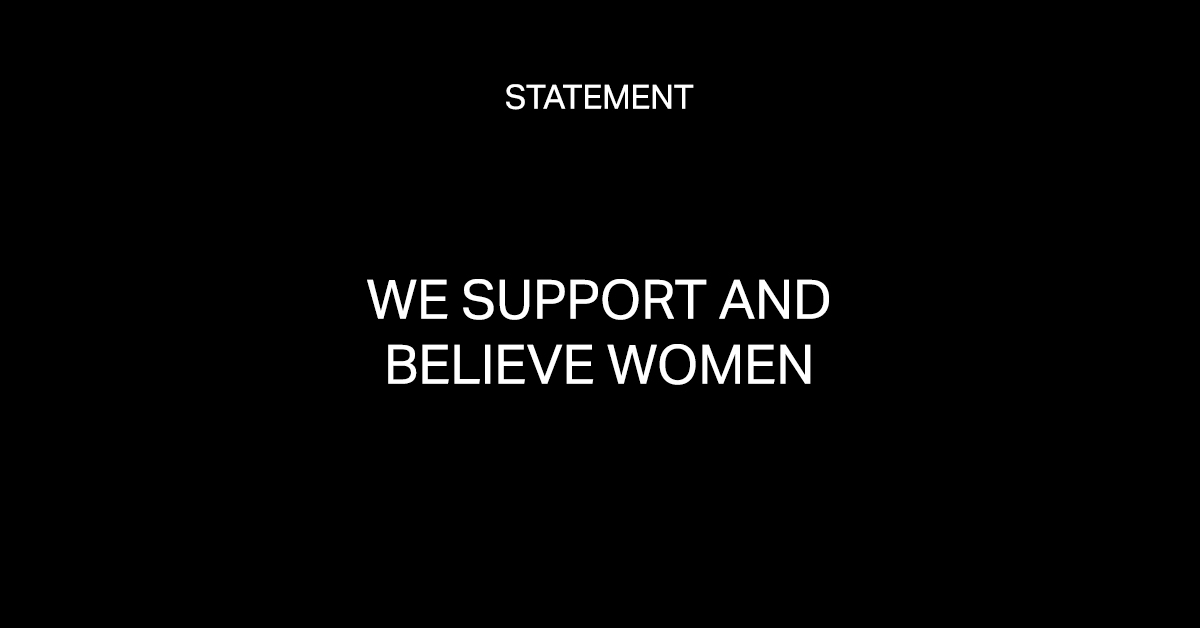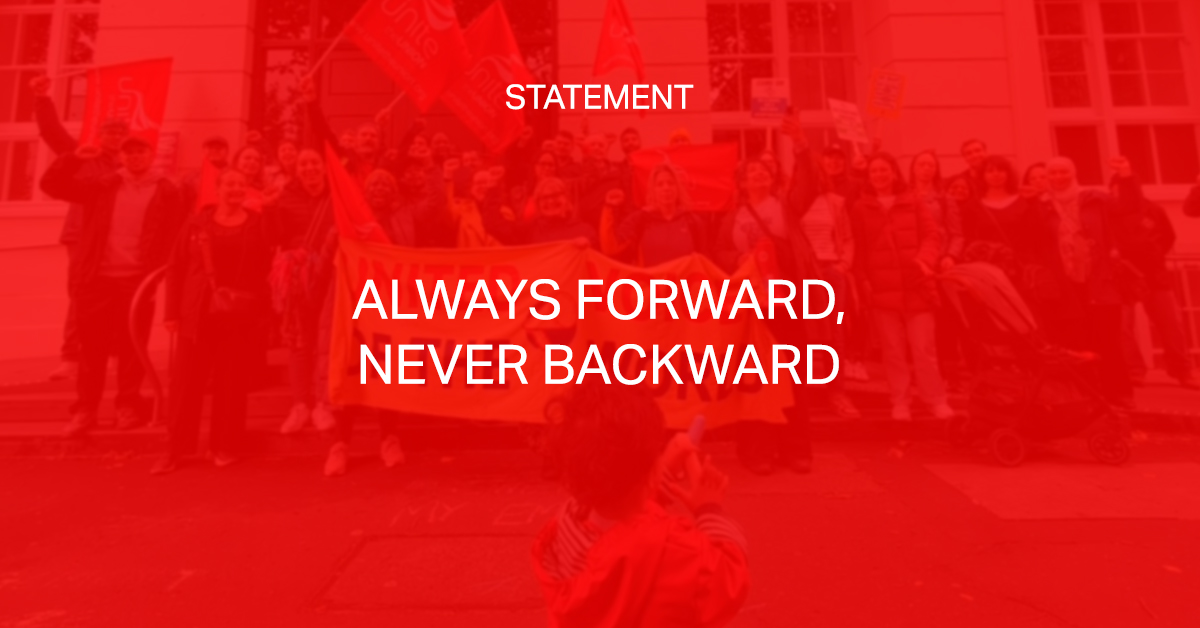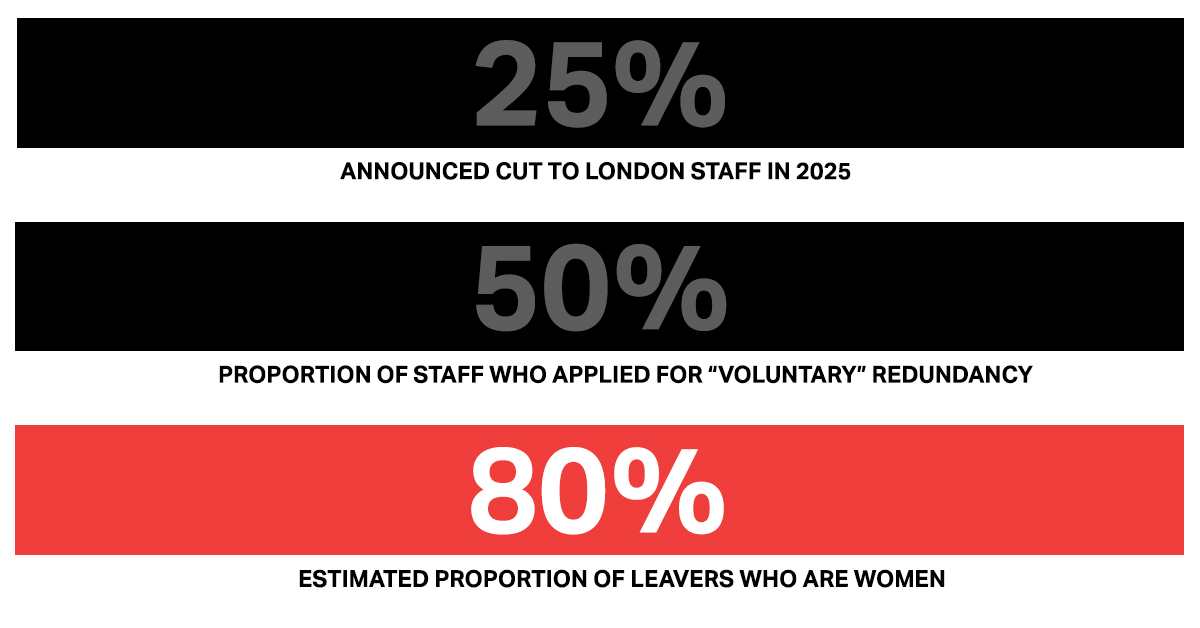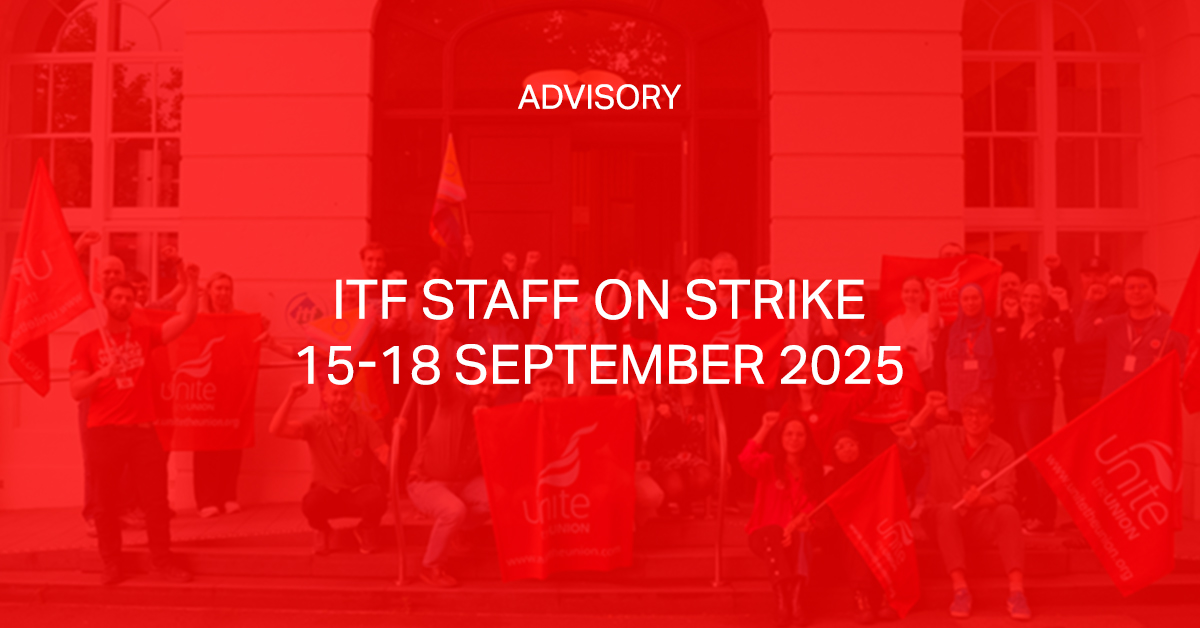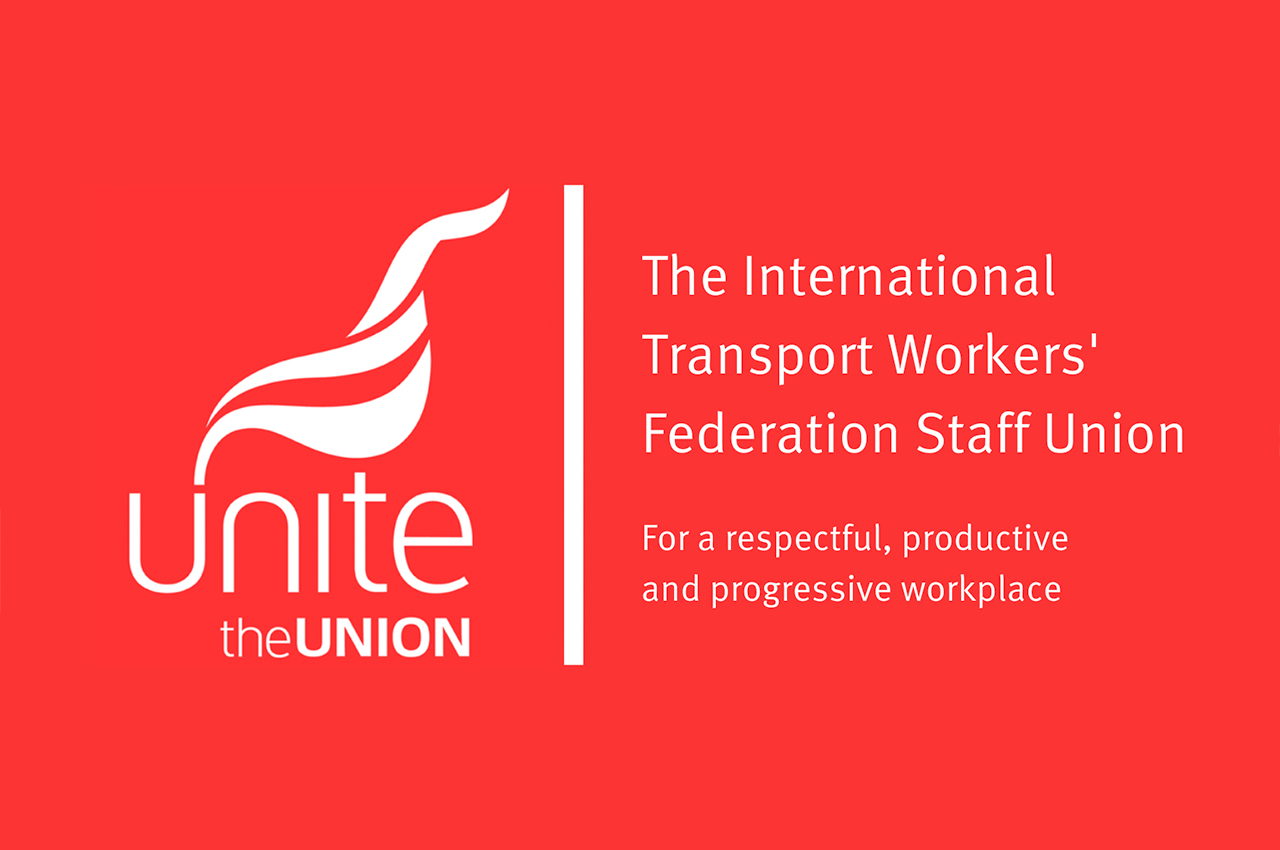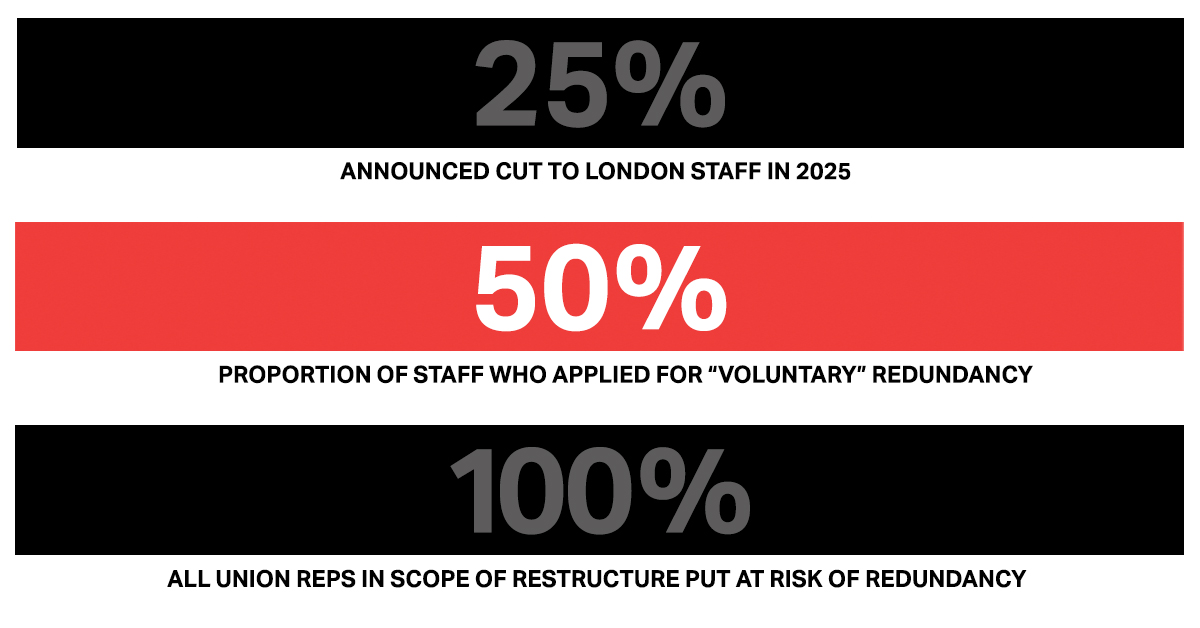Attention: ITF Affiliate Oversight Group (AOG)
Re: Allegations of sexual harassment against senior ITF officers and allegations of misogynistic culture within the ITF
I am the Full Time Officer with responsibility for Unite the Union at the International Transport Workers Federation (ITF) and I am writing to you in your capacity as members of the Affiliate Oversight Group (AOG) at the ITF.
Further to the Novara Media news article dated 15th October 2025, and the subsequent ITF Executive Board (EB) meeting in Rio de Janeiro, the Staff Committee have requested I convey the demands of the workforce in relation to serious allegations of sexual harassment, misogyny and a sexist culture at the ITF.
On 17th October 2025 the EB voted to give you as the AOG certain duties, tasks and powers in relation to this important matter, and it is imperative that the staff working for the ITF have their voice heard loud and clear in that process. For too long, the organisation (including the AOG) has failed to prevent the sidelining, ignoring and silencing of the voice of women (or their union representatives) raising the alarm at the ITF, and this must stop now.
Unite the Union hold the AOG and EB responsible for what happens from now, and our members have instructed us to make clear to you that these matters are regarded with the most critical importance from operational, ethical and industrial standpoints.
In what has already been the most damaging year for industrial relations in the history of the organisation, the juncture that the ITF is now at and the paths you can choose to take it down are being watched vigilantly and intently by our membership who retain an active mandate for Industrial Action.
In the above context I therefore present the immediate demands and expectations of our membership, which we hope you will swiftly confirm your agreement to in full. Our members expect that this will lead to a period of close working between the AOG and Staff Committee as we work towards what we assume are shared goals to eradicate the alleged behaviours and discrimination from the organisation, the movement and the sector.
To avoid necessary escalation from the staff side, we request an urgent response by 5th November 2025.
We look forward to hearing from you shortly.
Yours sincerely,
Matt Freeman
Regional Co-ordinating Officer Unite the Union
ITF staff response to the Statement from the ITF Executive Board (Rio de Janeiro, 17 October 2025)
To be read in conjunction with ITF staff union statement (“We support and believe women”) from 16 October
Staff of the ITF have already participated in reviews, investigations, internal surveys and testified via individual complaints.
If staff are going to have confidence in the investigation the following needs to be agreed as a matter of urgency.
1. Staff union representation and meaningful role in design and remit of investigation
Both Unite and victims of harassment have consistently raised the need for the staff union to play a central role in what happens next as the recognised union within the ITF. We are asking that the Affiliate Oversight Group (AOG) engages us regularly and systematically as part of this process that must begin immediately with clear timelines and deliverables. We expect that current and former staff will have the right to be accompanied by a Unite representative at any investigation meetings that may take place.
2. Appoint a qualified and fully independent investigator
The investigator leading this process must have expertise in gender and whistleblowing. They must be fully independent, which means no link to the ITF General Secretary or key members of ITF senior management team to avoid any bias or even the perception of bias. We demand that the AOG seek agreement with the Staff Committee on the selection of the investigator and in agreeing the Terms of Reference for the investigation.
3. Ensure the appropriate role of the Affiliate Oversight Group
Given the gravity of these concerns, the ITF cannot be seen to be “marking its own homework”. The actual investigator cannot be the AOG as the AOG is an ITF body. The role of the AOG may fall within the scope of the investigation as the AOG has played a part in the equalities work to date. Unite should have the opportunity to reappoint a representative to the AOG following the retirement of Diana Holland. We must have transparency on the remit and authority of the AOG. Whichever external investigator is appointed must have sufficient independence from the AOG and ITF to undertake their role impartially and the requisite resources must be made available.
4. Guarantee necessary scope for investigation
The investigation needs to take account of all previous investigations and reports. The scope should include the possibility of wrongdoing by staff members in positions of significant authority, and affiliates when engaged in ITF activities. We additionally call for a review of management’s actions in preventing recurrence of such behaviour, especially in light of legal obligations under UK employment law and the culture of misogyny in the ITF.
5. Commit to transparency
Full disclosure, going forward and backwards, with respect to investigation recommendations. This includes sharing recommendations to historic complainants who were not properly made aware of the outcomes of investigations such as with the Kapur report. Critically, the investigation’s remit must encompass the possibility of speaking to former staff including those who signed NDAs for the purpose of understanding continuing risks and ensuring appropriate protections are in place. We request that the investigation encompasses the scale and justification for historic use of NDAs.
6. Provide staff with tangible support and safeguards
ITF should offer to pay for professional counselling, separate from the employer-provided EAP, for staff both current and past, who have faced distress or harm as a result of their workplace experiences at the ITF. We call for the AOG to immediately review whether any emergency safeguards need to be implemented to safeguard staff.

